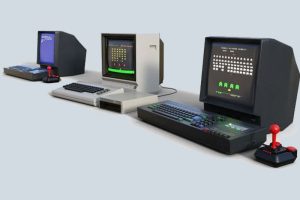Computers have become indispensable tools in the realm of scientific research, profoundly influencing the way we explore and understand the world. From conducting complex simulations to analyzing massive datasets, computers have revolutionized the process of scientific discovery. In this article, we delve into the critical role that computers play in advancing scientific knowledge and innovation.
1. Data Collection and Analysis
In modern scientific research, data collection has been significantly enhanced through the use of computers. Advanced sensors, data loggers, and imaging devices are used to gather vast amounts of information, which can then be efficiently processed and analyzed by computer systems. This capability is vital in fields like astronomy, where telescopes capture terabytes of data each night, or genomics, which generates enormous datasets for DNA sequencing.
2. Computational Simulations
Computers have made complex simulations an integral part of scientific investigations. Scientists can model physical and chemical processes, biological interactions, and even simulate the behavior of galaxies or particles at the quantum level. These simulations provide valuable insights into phenomena that are impractical to study directly, such as the behavior of subatomic particles or the dynamics of weather systems.
3. Data Visualization
The ability to visualize data is a powerful tool in scientific research. Computers help scientists create stunning visual representations of their data, aiding in the understanding of complex relationships and patterns. Visualization tools make it easier to convey findings to peers and the general public, promoting scientific literacy and understanding.
4. High-Performance Computing
High-performance computing (HPC) clusters and supercomputers are used for computationally intensive tasks. These systems can perform millions of calculations per second, enabling researchers to tackle complex problems, such as climate modeling, drug discovery, and nuclear physics. HPC has become essential for projects that require substantial computational power.
5. Artificial Intelligence and Machine Learning
Artificial intelligence (AI) and machine learning (ML) have revolutionized scientific research. These technologies can identify patterns, make predictions, and even assist in experimental design. In fields like medicine, AI is being employed for drug discovery and predicting disease outbreaks. In particle physics, ML algorithms are used to analyze the data produced by particle accelerators.
6. Data Storage and Management
The vast quantities of data generated in scientific research require robust storage and management solutions. Computers provide the capacity to store, catalog, and retrieve data efficiently. Cloud-based storage solutions have made it easier for researchers to access and share their data with collaborators worldwide.
7. Collaboration and Communication
Computers facilitate collaboration among scientists around the globe. Researchers can collaborate in real-time, sharing data, results, and insights, enabling collective problem-solving. Communication tools such as video conferences and online collaboration platforms have become invaluable for cross-disciplinary research.
8. Accessibility to Research
Computers have democratized access to scientific knowledge. Online databases, journals, and open-access publications enable researchers and the public to access the latest findings. This free exchange of information accelerates the pace of scientific discovery.
9. Theoretical and Predictive Research
Computers play a fundamental role in theoretical research. They enable scientists to develop and test hypotheses, providing insights that can guide experimental research. In astrophysics, for instance, computer simulations help astronomers predict the behavior of celestial bodies, leading to the discovery of exoplanets and black holes.
10. Ethical and Responsible Research
With the increased role of computers in scientific research, ethical considerations around data privacy, security, and responsible use of AI are paramount. Researchers must navigate these challenges to ensure that their work is conducted with integrity and societal well-being in mind.
In conclusion, computers are indispensable tools in scientific research, driving the advancement of knowledge and understanding. They empower scientists to explore complex phenomena, model intricate systems, and analyze extensive datasets. The symbiotic relationship between computers and scientific discovery promises to continue reshaping the frontiers of human knowledge, leading to innovative breakthroughs in countless fields of study.














Add Comment